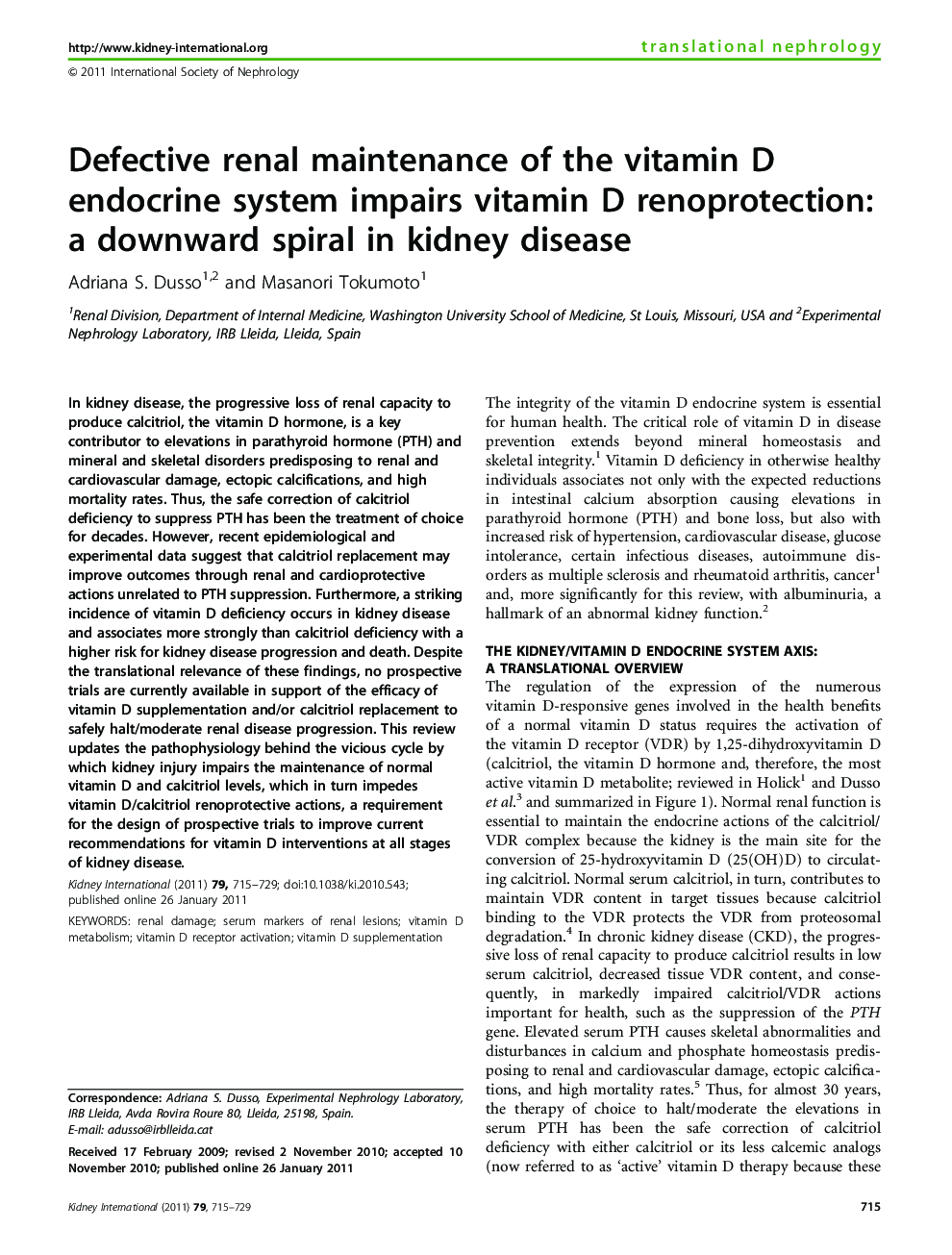| Article ID | Journal | Published Year | Pages | File Type |
|---|---|---|---|---|
| 3884261 | Kidney International | 2011 | 15 Pages |
In kidney disease, the progressive loss of renal capacity to produce calcitriol, the vitamin D hormone, is a key contributor to elevations in parathyroid hormone (PTH) and mineral and skeletal disorders predisposing to renal and cardiovascular damage, ectopic calcifications, and high mortality rates. Thus, the safe correction of calcitriol deficiency to suppress PTH has been the treatment of choice for decades. However, recent epidemiological and experimental data suggest that calcitriol replacement may improve outcomes through renal and cardioprotective actions unrelated to PTH suppression. Furthermore, a striking incidence of vitamin D deficiency occurs in kidney disease and associates more strongly than calcitriol deficiency with a higher risk for kidney disease progression and death. Despite the translational relevance of these findings, no prospective trials are currently available in support of the efficacy of vitamin D supplementation and/or calcitriol replacement to safely halt/moderate renal disease progression. This review updates the pathophysiology behind the vicious cycle by which kidney injury impairs the maintenance of normal vitamin D and calcitriol levels, which in turn impedes vitamin D/calcitriol renoprotective actions, a requirement for the design of prospective trials to improve current recommendations for vitamin D interventions at all stages of kidney disease.
